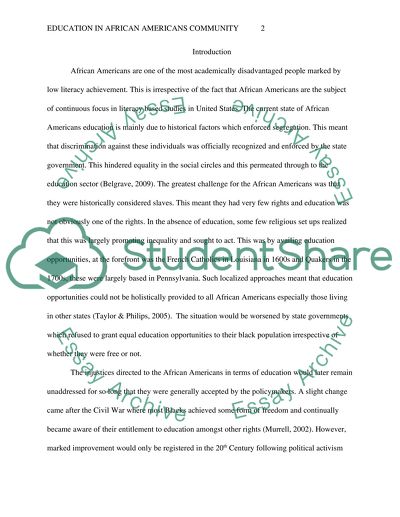Cite this document
(“Education in African Americans Community Essay Example | Topics and Well Written Essays - 1750 words”, n.d.)
Retrieved from https://studentshare.org/education/1461960-education-in-african-americans-community
Retrieved from https://studentshare.org/education/1461960-education-in-african-americans-community
(Education in African Americans Community Essay Example | Topics and Well Written Essays - 1750 Words)
https://studentshare.org/education/1461960-education-in-african-americans-community.
https://studentshare.org/education/1461960-education-in-african-americans-community.
“Education in African Americans Community Essay Example | Topics and Well Written Essays - 1750 Words”, n.d. https://studentshare.org/education/1461960-education-in-african-americans-community.


